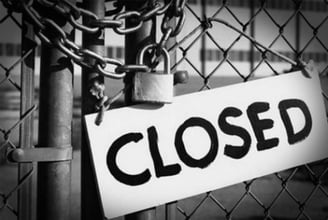August 18 2021
Categories: Business Insurance
August 18 2021
Categories: Business Insurance

Business Planning – Are You Contemplating Changes?
Most general liability insurance policies respond to incidents on an occurrence basis, which typically means losses must occur within the policy coverage territory and during the policy period to be covered. The occurrence date is generally the date the injury or damage actually happened, not when the work was done or the product was made. If discontinued products and operations coverage is not purchased after an insurance policy is cancelled, personal assets are left exposed to legal defense and settlement costs for losses occurring after the cancellation date.
“Why do I need coverage for discontinued products and completed operations?”
In both of the following instances, no coverage was purchased for discontinued products and operations.
Abe is a sole proprietor who constructs single family dwellings doing all of the carpentry work himself. He has an occurrence based policy and has been continuously insured with the same carrier since 2000. In 2020, Abe decides to retire and cancels his policy in December of 2020.
A home he built in 2018 has a problem; Abe used the wrong material to secure the roof, which resulted in it weakening and collapsing in May of 2021. The occupant of the home was severely injured and sued Abe for her injuries.
A common assumption is that the carrier writing the policy in 2018, the time the roof was incorrectly installed, should provide defense for Abe and pay damages because of the bodily injury he is legally liable for. Unfortunately, because the bodily injury did not occur during the policy period, the policy will not respond or provide defense.
Jones Company manufactured a product from 2005-2018. In 2019, the owner sells the business to Smith Manufacturing. Jones cancels all of the insurance policies effective July 1, 2019 including the occurrence based general liability policy.
As a condition of the sale, Smith Mfg. assumes no liability for injuries by products sold before the July 1, 2019 date of sale. A product manufactured by Jones Co. in 2017 causes bodily injury in 2020 and a suit for damages is filed. Because the Jones Co. policies were cancelled in 2019, there is no defense expense coverage and the personal assets of the former owner of Jones Co. may be at stake if she is held liable for the loss.

Going Out of Business
Products your company produces may remain in the marketplace long after your business has ceased operations. In addition, work you have finished may exist for many years after you have completed it. Defects in your products or completed work may injure someone after your company has gone out of business. If the injured party sues you, the suit will not be covered by your former company’s liability policy.

Restructuring Your Business
You are changing from one type of legal entity to another. For example, you have switched from a partnership (John Smith and Bill Smith) to a corporation (Smith Inc.). The policy designating Smith Inc. as the named insured will not respond to claims against the partnership. The partnership will need to buy discontinued products and completed operations insurance to protect the partners from claims that arise from injuries that occur after the reorganization.

Buying a Business
You are buying a business and want to protect yourself against future bodily injury or property damage claims that arise out of products sold or work completed by the seller before the company was sold.

Selling Your Business
If the buyer will not assume liability for injuries caused by products sold before the date of sale and/or requires this to be a condition of the sale, you must assume liability for injuries that occur after the sale date resulting from products you sold prior to the sale.
Knowledge…Innovation…Solutions